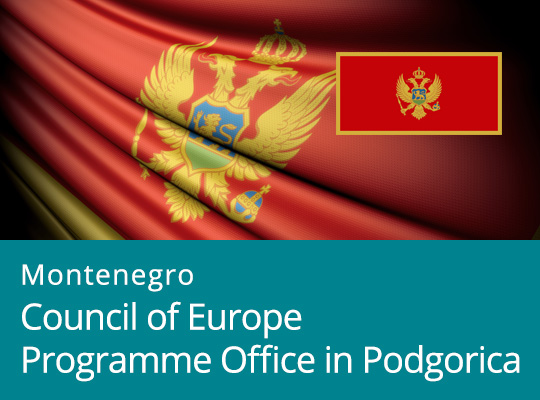Fighting Ill-treatment and Impunity and Enhancing the Application of the ECtHR Case-law on National Level (FILL)
Action summary
Within the theme “Ensuring justice”, the Council of Europe and the European Union are jointly financing the Action “Fighting ill-treatment and impunity and enhancing the application of the European Court of Human Rights case-law on national level – “FILL” in Montenegro.
The activities will focus on raising the capacities of judges, prosecutors and lawyers to better apply human right standards in their daily work. The training will be designed and implemented in close cooperation with the Judicial Training Centre, thus strengthening its capacities to facilitate human rights trainings for legal professionals, with a specific focus on protection and application of the Right to a Fair Trial (Article 6 of the European Convention on Human Rights) and Prohibition of torture and ill-treatment (Article 3 of the European Convention on Human Rights). In addition, the public dialog on prevention of torture and ill-treatment in places of deprivation of liberty shall be enhanced.
This Action is part of the Council of Europe/European Union Horizontal Facility for Western Balkans and Turkey.
Overall objective
The main aim of the Action is to contribute to the efforts in Montenegro to strengthen the judicial institutions and rule of law, thus ensuring that human rights of the people / population under the jurisdiction of Montenegro are better respected.
Outcomes and expected outputs
Outcome 1: The capacity of the judiciary to apply the ECtHR case-law on national level is improved
Expected outputs:
- Strengthened capacity of the Judicial Training Centre to facilitate human rights trainings for legal professionals
- Enhanced capacities of judges and legal advisors of the national courts to apply European human rights standards in their daily work
- Enhanced institutional capacity of the Constitutional Court towards better application of the ECtHR case law
- Identified shortcomings concerning length of proceedings and legislative solutions proposed
- Strengthened capacities of the national authorities to execute ECtHR decisions
Outcome 2: Legal professionals are able to more effectively combat ill-treatment and impunity
Expected outputs:
- Strengthened capacity of the Judicial Training Centre to train legal professionals on fighting ill-treatment and impunity
- Strengthened capacities of legal professionals (judges, prosecutors and lawyers) and certain civil society organisations to effectively address issues of ill-treatment and impunity in line with the ECHR and the ECtHR case-law
- Public dialogue on prevention of torture and ill-treatment in places of deprivation of liberty is enhanced through increased engagement of the CSO sector
Outcome 3: Cooperation between the judiciary and legal professionals towards harmonised implementation of the Convention standards at the national level is reinforced
Expected outputs:
- Strengthened capacities of the legal professionals toward coherent application of ECHR and ECtHR case law at the national level
This webpage has been produced using funds of a joint project between the European Union and the Council of Europe. The views expressed herein can in no way be taken to reflect the official opinion of the European Union.
- Duration: 32 months and 23 days - from 1 September 2016 to 23 May 2019
- Beneficiaries/Partners: Ministry of Justice, Supreme Court, Constitutional Court, Appellate Court, High Courts, Administrative Court, Basic Courts, Judicial Training Center, Prosecutor General's Office, Judicial Council, Bar Association, National Agent before the ECtHR, Universities of Montenegro / Law Faculties
- Funding: The European Union and the Council of Europe
- Budget: 1.090.000 EUR
- Provision of expertise
- Technical co-operation
- Training/workshops
- Study visits
- Awareness raising




